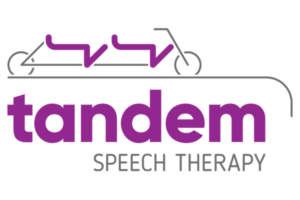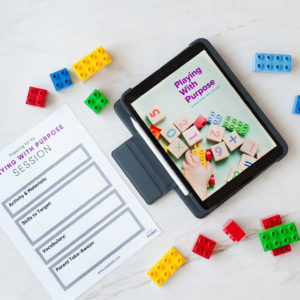It’s ok to ask for help! No one expects you to know everything or even what you should do when you are concerned about your child’s speech and language skills. I hear from parents all the time that are unsure of developmental milestones or who to talk with if they are concerned. Even figuring out that first step to take is tricky. So I am going to break it down and provide you with the steps you can and should take if you suspect your child is having communication difficulty. Don’t get bogged down with the huge list and think you need to do it all. Baby steps are the key. Try picking 1 or 2 steps to focus on at a time and remember, it’s ok to ask for help. As a parent or caregiver you cannot do it all. We, as speech-language pathologists, are here to assist and guide you.

Steps to Take if You’re Concerned About Communication:

Early intervention is key! Lots of speech and language deficits can be remediated very quickly and others take time. You want to get started working with a local speech-language pathologist soon. Even if you are unsure if your child is having difficulty, call an SLP and ask. Give them your child’s name, their age, and explain your concerns. The SLP will make recommendations and help you schedule an evaluation if it’s the correct course of action. Learn more about what that process can look like here.
Find out what public school district you live in and contact them to see who handles speech-language evaluations. Another great place to start is with a local university’s speech and hearing center or with a local speech-language pathologist.
Austin-specific resources:
- Austin ISD Special Education department
- University of Texas Speech and Hearing Center
- Contact me for your FREE Communication Consultation


Contact your pediatrician and voice your concerns. Your pediatrician has likely had a few interactions with you and your child. They have asked you before about your child’s speech and language skills as part of your routine visits so they already have a sense of his/her abilities. If you feel like your concern were not taken seriously then reach out to one of my suggestions in tip #1 or #2.
Another option if your child is under the age of 3 then your child may qualify for free services through the county or state you live in. These services are specifically called Early Childhood Intervention (ECI). To see who provides ECI services for your area go to Google and type in your zip code + early childhood intervention. Then give them a call!
Record video samples of your child attempting to communicate. This can be incredibly useful when you speak to a professional. In my experience, we are not always able to get a full picture or your child’s abilities in an hour-long evaluation session.
- Get a clear video with your child’s face/mouth in sight.
- Have a few on hand at your first appointment with a professional in case your child gets shy or hesitant around an unfamiliar person.
- Take the videos at the times your child is most communicative. This can often be when they are playing with their favorite toy.


Start to take notes and make a list of the words and phrases you hear your child say. This will help the professional determine the types of vocabulary your child is using and know what sounds they are using too.
If your child is producing speech that may be difficult for an unfamiliar person to understand then makes notes about this too. Some children may start to say “wa-wa” for water. Write these kinds of things down in your notes.
Join a local mom’s group whether it is a group that meets in person or online. Other moms may have been through this before and they can be an excellent resource for professionals, advice, and support.
In Austin we are lucky to also have a number of mommy bloggers who share their experiences and support moms both near and far. A few of my favorites are: Jack’s Mom in Austin and Austin Moms Blog. Or for first time parents there is an organization called Partners in Parenting that facilitates groups.


Pay attention to whether or not you are giving your child opportunities to communicate. As a parent or caregiver it’s easy to anticipate all the needs of your child. While this is an excellent parenting skills, it is less than ideal for children who are delayed in their communication skills. The professional you choose to work with can provide you with tools to enhance your child’s communication skills. In my practice I use the Hanen method for teaching parents.
Educating you, as the parent or caregiver, is a top priority for my work.
Most importantly….trust your gut! The old adage says, “Mother knows best.” And in most cases that is true. You know your child the best and are their #1 advocate. If you are not happy or uncomfortable with your first opinion, then get a second opinion. The more you ask and learn, the more equipped you will be to help your child.
If you’re interested in learning more ways to help your child develop speech and language skills then sign up for my newsletter or read more in my series called Playing With Purpose. Providing your child with opportunities for language does not have to be complicated. Play can create moments of learning for your child and moments of connection for you both. With little tweaks to the play time, and even the everyday routines you are already engaging in, you can increase opportunities for speech and language development in your child.

Still have questions?
Start Playing With Purpose
Learn how to purposefully and intentionally interact with your child during play and help them increase opportunities for speech and language development with our Playing with Purpose book!










